I hope you enjoy reading this blog post.
If you want my team help you Get More Traffic More Customers More Revenue With Digital Marketing, just book a call
If you want my team help you Get More Traffic More Customers More Revenue With Digital Marketing, just book a call
Last updated on 2 January, 2024 by Ravi Gupta
Search engines have become increasingly sophisticated in understanding the intent and relevance of content for users' search queries. They are constantly optimizing their algorithms to provide the most useful and engaging content to searchers.
Yandex - a Russian multinational technology company that operates Russia's largest search engine and provides various online services. In January 2023, there was a big data breach at Yandex. Unfortunately, an ex-employee attempted to sell the Yandex search engine's code on the black market. They were planning to fetch around $30,000 for it. However, a major data leak from Yandex on January 27, 2023, has sent shockwaves through the SEO community, shedding light on the intricate ranking factors and dispelling some long-standing myths.
his massive trove of confidential data has enabled SEO experts and SEO agencies to analyze exactly how websites are ranked within Yandex's search results. It has also allowed the testing of many myths and assumptions about Yandex's ranking factors. The leak provides a rare opportunity to compare Yandex's practices versus Google and other search engines.
In this article, we will understand which data was leaked, how it has impacted Yandex’s reputation, and key learning from this major data leak. We'll also look at what SEO professional and SEO company in Russia has to say about these data leaks and how they reassess their strategies. While the leak originated from Russia, the findings have far-reaching implications for SEO best practices globally.
In January 2023, Yandex, Russia's largest technology company, suffered a massive data breach that exposed the search analytics and ranking data they collect on websites. Specifically, the leak contained
The breadth of competitive intelligence exposed was unprecedented for an SEO leak of this scale. It provided target keyword opportunities, rich ranking data, and search behavior insights that are rarely accessible. The data proved invaluable for SEO agencies and SEO professionals working internationally.
Yandex groups its ranking signals into three broad categories. According to Yandex’s published materials, which have specified this for a while, understanding this classification helps clarify the recent leak about their ranking factors.
The recent Yandex data leak has opened a window into the intricate workings of one of the most prominent search engines in the Eastern European and Russian markets. Among the troves of information revealed, several key learnings shed light on the critical factors that influence website rankings on Yandex.
The leak has brought to light the existence of MatrixNet, an advanced machine-learning algorithm used by Yandex for ranking web pages. MatrixNet utilizes a complex set of signals and factors to determine the relevance and authority of a page, making it a pivotal component of Yandex's ranking system.
Yandex's algorithm takes into account both URL and page-level factors when determining rankings. The URL structure and on-page elements such as title tags, headers, and meta descriptions significantly influence how a page is evaluated for relevance and quality.

Internal linking and crawl depth play crucial roles in Yandex's algorithm. The leak indicates that a well-structured internal linking strategy and optimal crawl depth can positively impact a website's visibility. Ensuring that important pages are easily accessible to search engine crawlers is key.
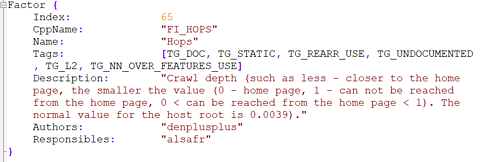
Click-through rate (CTR) emerges as a critical metric in Yandex's ranking algorithm. The leak suggests that the number of clicks a page receives directly influences its position in search results. High CTR indicates user engagement, signaling Yandex that the page is relevant and valuable to searchers.
At some point, Yandex incorporated TFIDF (Term Frequency-Inverse Document Frequency) into its algorithm. TFIDF is a statistical measure used to evaluate the importance of a term within a document relative to a collection of documents. The presence of TF*IDF in Yandex's algorithm emphasizes the significance of content relevance and keyword optimization in achieving favorable rankings.
Yandex incorporates specific factors for Your Money or Your Life (YMYL) topics, such as medical, legal, and financial content. This aligns with the global trend in search engines to prioritize accuracy, expertise, and trustworthiness in content related to sensitive topics. SEO agency in these niches should pay particular attention to meeting Yandex's specialized criteria.
Yandex employs a form of page quality scoring known as ICS (Internal Content Score). When ranking a webpage, its overall position is determined by considering the quality and relevance of its content. The content's significance heavily influences the final ranking. Understanding and optimizing for the ICS score can significantly impact a website's visibility on Yandex.
The leak highlights concerns about potential manipulation of clicks and user behavior. SEO professionals should focus on organic strategies to enhance user engagement rather than resorting to artificial methods that could trigger penalties from Yandex.
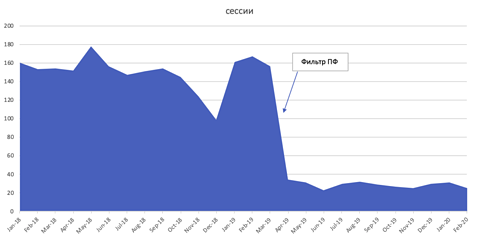
Yandex's analytics tool, Yandex. Metrika is integrated into its ranking algorithm. Data from Metrika, including user interactions and behavior on websites, contributes to the evaluation of page relevance and quality. Website owners should leverage Metrika insights to refine their strategies.
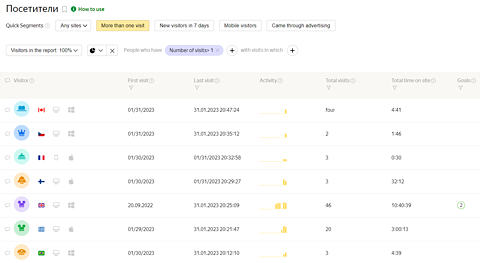
Yandex uses several factors when indexing and ranking news content to provide users with the most relevant and timely information.
Overall, Yandex aims to show users timely, authoritative results for news queries by factoring in relevance, freshness, engagement, and source trustworthiness. Providing quality journalism, optimizing for named entities, and updating stories helps publishers succeed.
The Yandex data leak has confirmed that rankings are influenced by traffic and user engagement metrics. The search results can boost Pages and sites with more visits, longer sessions, and more user interactions. However, the relationship goes both ways - higher rankings also drive more traffic.
It's important to note that traffic itself does not guarantee better rankings. Low-quality pages with artificial or manipulative traffic may be penalized. The traffic and engagement must come from real users who find the content useful.
The Yandex leak provided some interesting insights into how search ranking factors differ between mobile and desktop. Here's a quick rundown of what we, as SEO service providers, learned:
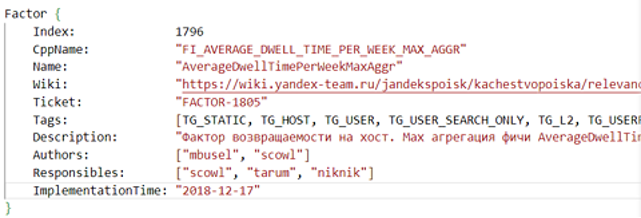
While the Yandex leak didn't reveal any major shockers, it did confirm some important differences between desktop and mobile rankings. Optimizing for the unique needs of mobile users pays dividends in mobile search results.
Despite advancements in search engine technology, there is no news yet to suggest that Yandex can crawl JavaScript beyond the publicly documented processes. This indicates that traditional SEO practices, focused on HTML content and metadata optimization, remain crucial for visibility on Yandex.
Our analysis of the Yandex data leak provides insights into the actual relationship between onpage ads and rankings. Onpage ads negatively impact rankings because they distract users. While distracting ads are bad for user experience, we found no evidence that onpage ads directly hurt rankings. Ranking factors focus on relevance, authority, and content quality—not ads.
Next, the more ads on a page, the worse it ranks. But, the data shows page ad density alone does not determine rankings. Other factors like content, links, and site authority have a much bigger impact. Pages with more ads did not inherently rank lower.
Also, the relevance of ads to page content. However, the data revealed pages where ads were highly relevant to the content and user intent tended to rank slightly higher. Irrelevant ads did not seem to hurt rankings directly but likely impacted user experience.
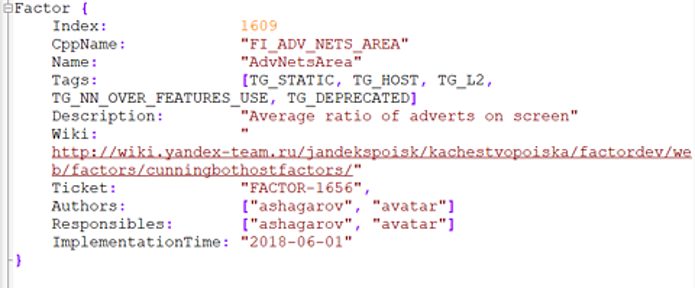
The recent data leak in Yandex has prompted several SEO agencies in Russia to consider reducing their dependence on Yandex tools and search alone. Although Yandex used to reign as the top search engine in Russia, its reputation has been severely affected by this unfortunate incident. As a result, Russian SEOs are expanding their strategies by considering alternatives.
Some SEOs plan to reduce their dependence on Yandex's webmaster tools like Yandex.Webmaster and Yandex.Metrica. While these tools have been essential for optimizing sites for Yandex, SEOs want to mitigate the risks of future data leaks. There is interest in exploring comparable tools from other providers that could supplement or replace Yandex's platforms.
Opinions vary, but several key themes emerge from the discussions among Russian SEO agency includes:
Given Yandex's apparent emphasis on local and region-specific factors, Russian SEO service providers are emphasizing the importance of localized SEO strategies. This includes building strong connections within the Russian online community, securing local backlinks, and tailoring content to cater specifically to the preferences of the Russian audience.
The leaked data has led to speculation about potential algorithm changes or updates from Yandex. Russian SEO professionals closely monitor their rankings and adjust their strategies to align with any shifts in the algorithm. The adaptability of SEO strategies is seen as crucial in the wake of the leak.
The Yandex data leak has prompted some soul-searching among Russian SEO professionals regarding their strategies and over-reliance on Yandex tools and data. Many are rethinking their approach to building links and gathering keyword data that had previously depended heavily on Yandex's services.
There is a growing realization that Yandex should not be the sole focus of Russian SEO efforts and that strategies need to diversify. Some experts recommend decreasing dependence on Yandex's metrics and exploring alternatives like Google Search Console as well as third-party SEO tools. The leak has underscored the risks of building a strategy too closely tied to a single provider.
It is also noteworthy that several observations and insights drawn from the leaked data align with the findings in the Western SEO community.
Within the Russian SEO community, a prevailing sentiment has endured that Yandex often exhibits a preference for its proprietary products and services in search results over other websites. This has led webmasters to question the rationale behind Yandex's extensive efforts when its services consistently secure prominent positions on search result pages.
Some specific strategies Russian SEOs say they are reconsidering in light of the leak include:
The Yandex data leak has unfortunately affected the reputation of the company as a secure and reliable service. Many Russian SEO professionals have expressed dismay at the lack of data protections that allowed over 53 million users' private information to be leaked and sold online.
This breach of trust will likely have long-lasting impacts on Yandex's reputation among users and SEO experts in Russia. Yandex has always branded itself as a homegrown, Russian alternative to Google that could be trusted to protect user data. This leak has shattered that image of security.
Russian SEOs largely agree that Yandex will have difficulty regaining user trust after such a massive failure to safeguard private information. The damage to Yandex's reputation will likely persist for years, even after the company implements new data protection policies.
The loss of reputation as a privacy-focused and secure search engine will present huge challenges for Yandex. Going forward, the company will need to put in extra effort to reassure users that it truly values data protection and has strong measures in place to avoid any more security incidents. However, Yandex may take a very long time to rebuild that trust with users after such a devastating data leak.
The Yandex data leak provides valuable insight into search engine ranking factors and differences between geographic locations and devices. However, the implications extend beyond just SEO.
User behavior and engagement metrics are becoming increasingly important for search rankings. As Yandex evolves its algorithm, expect user experience factors like session duration, scroll depth, and click-through rate to grow in influence. Companies must start focusing more on creating content that keeps users engaged.
Search engines are leveraging AI and ML more than ever before. As these technologies advance, search algorithms will become even better at understanding user intent and matching queries to optimal results. Unique, high-quality content will likely be rewarded.
With the rise of voice assistants, voice search use is increasing. Yandex and other search engines will prioritize voice search optimization more moving forward. Brand name authority and conversational, natural language content will be key
Search is becoming more personalized, factoring in user location, device, past queries, and other data. Businesses should focus on understanding their niche audiences and tailoring content accordingly vs chasing broad SEO trends.
With the proliferation of online misinformation, search engines emphasize expertise, authoritativeness, and trust. Creating content that establishes subject matter expertise and credibility will only grow more important over time.
The Yandex leak provides unique insight into current search ranking factors. But many changes are on the horizon. Businesses should stay agile and optimize for the user, not just algorithms. Unique value and expertise will continue to be rewarded in search.
I'm Ravi Gupta, the founder of ravi-gupta.com. Here, I teach beginners to Get More Traffic More Customers More Revenue With Digital Marketing Join Our Newsletter

10 Best HR Software for Startups in 2024
Published on 8 February, 2024

What is Affiliate Marketing? Publisher’s Best Guide to Start in 2024
Published on 31 December, 2023

How To Make Money Blogging (Your Passive Income Guide for 2024)
Published on 31 December, 2023

Keyword Research for SEO – The Ultimate Guide For Beginners (2024)
Published on 31 December, 2023

Content Creation Checklist To Boost & Viral Blog Post 2024
Published on 14 December, 2023
Get FREE access to our Book - 299+ Way make money online without investment
Get The BookJun 6, 2019 at 9:48 pm
I have installed and activated the plug-in, put it in the side bar and logged in to FB (choosing my nominated page) however none of the Review & Slider Options came up, only the Facebook details, Title, Pagination, Characters before ‘ read more’ link, Widget Width etc.
ReplyThanks for choosing to leave a comment. Please keep in mind that all comments are moderated according to our comment policy, and your email address will NOT be published. Please Do NOT use keywords in the name field. Let's have a personal and meaningful conversation.
Save my name, email, and website in this browser for the next time I comment. Notify me of followup comments via e-mail. You can also subscribe without commenting. Submit CommentJun 6, 2019 at 9:48 pm
I have installed and activated the plug-in, put it in the side bar and logged in to FB (choosing my nominated page) however none of the Review & Slider Options came up, only the Facebook details, Title, Pagination, Characters before ‘ read more’ link, Widget Width etc.
ReplyThanks for choosing to leave a comment. Please keep in mind that all comments are moderated according to our comment policy, and your email address will NOT be published. Please Do NOT use keywords in the name field. Let's have a personal and meaningful conversation.
Save my name, email, and website in this browser for the next time I comment. Notify me of followup comments via e-mail. You can also subscribe without commenting. Submit CommentMay 21, 2018 at 7:53 am
Today I learned new technic from this Blog. Thanks.
ReplyThanks for choosing to leave a comment. Please keep in mind that all comments are moderated according to our comment policy, and your email address will NOT be published. Please Do NOT use keywords in the name field. Let's have a personal and meaningful conversation.
Save my name, email, and website in this browser for the next time I comment. Notify me of followup comments via e-mail. You can also subscribe without commenting. Submit CommentThanks for choosing to leave a comment. Please keep in mind that all comments are moderated according to our comment policy, and your email address will NOT be published. Please Do NOT use keywords in the name field. Let's have a personal and meaningful conversation.
Save my name, email, and website in this browser for the next time I comment. Notify me of followup comments via e-mail. You can also subscribe without commenting. Submit Comment© 2018-2024 Ravi-Gupta.com - All rights reserved